MercoPress. South Atlantic News Agency
Economy
-
Monday, December 29th 2025 - 10:55 UTC
Brazil records highest foreign investment inflow in a decade

The Brazilian government announced on Sunday that Foreign Direct Investment (FDI) reached US$84.1 billion between January and November 2025, marking the highest volume of capital inflow since 2014.
-
Saturday, December 27th 2025 - 10:55 UTC
Milei gets Congressional nod for 2026 Budget

President Javier Milei's La Libertad Avanza (LLA) scored a key parliamentary victory on Friday when the Senate passed by 46 to 25 votes and one abstention the 2026 Budget Bill, enshrining a “zero deficit” fiscal rule. The Upper House also endorsed the so called Fiscal Innocence Act, shielding private savings from state oversight.
-
Friday, December 26th 2025 - 22:28 UTC
Brazil: Azul Airlines' stock plummets amid new issuance

Azul Airlines' stock experienced a severe market crash on Friday, with shares plummeting as much as 50% during intraday trading before settling at a 25% loss by mid-afternoon. The sell-off follows the airline's massive issuance of new shares as part of its ongoing US Chapter 11 bankruptcy restructuring.
-
Tuesday, December 23rd 2025 - 11:43 UTC
Uruguay's Economy Minister worried by too much success
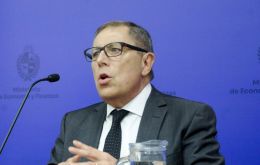
Uruguay's Economy Minister Gabriel Oddone announced Monday that his country's GDP was projected to expand by 2.3% this year. While the figure is slightly lower than initial government forecasts, Oddone emphasized that it represents more than double the average growth rate seen over the past decade.
-
Tuesday, December 23rd 2025 - 11:39 UTC
Argentine Appellate Court orders Central Bank to disclose details of gold shipments abroad

The Buenos Aires Federal Administrative Court of Appeals has dealt a significant legal blow to the Central Bank of the Argentine Republic (BCRA), ordering it to release detailed information regarding the shipment of national gold reserves overseas.
-
Friday, December 19th 2025 - 10:53 UTC
CAF okays US$980mn package for Uruguay

The Board of Directors of the Development Bank of Latin America and the Caribbean (CAF) has authorized a landmark US$980 million credit operation for Uruguay. This approval represents one of the largest single financial commitments in the organization's history with the country, targeting a massive overhaul of public infrastructure, climate resilience, and social integration.
-
Friday, December 19th 2025 - 09:02 UTC
Argentine gas brings relief to electricity generation in Uruguay
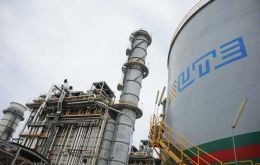
Uruguay's state-owned electricity company UTE (technically the Administración Nacional de Usinas y Transmisiones Eléctricas) announced this week that importing gas from neighboring Argentina has resulted in savings of around US$3 million in the first seven days.
-
Friday, December 19th 2025 - 08:47 UTC
Paraguay's guaraní is most stable currency in the region, Bloomberg finds
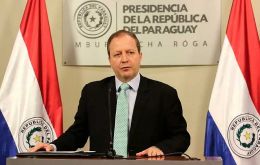
Paraguay's guaraní (PY₲) has been highlighted as the most stable and highest-performing currency in Latin America for 2025. In a report published this week by the specialized outlet Bloomberg Línea, the Paraguayan currency has appreciated over 17% against the US dollar this year, outperforming Mexican and Colombian pesos.
-
Thursday, December 18th 2025 - 10:55 UTC
Lula issues ultimatum as Meloni and Macron stall EU-Mercosur FTA
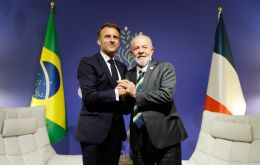
Brazilian President Luiz Inácio Lula da Silva issued a sharp ultimatum to European leaders on Wednesday, declaring that if the long-awaited EU-Mercosur Free Trade Agreement (FTA) is not signed this Saturday, he will abandon negotiations for the remainder of his presidency.
-
Thursday, December 18th 2025 - 08:11 UTC
Bolivian President ends fuel subsidies, raises minimum wage
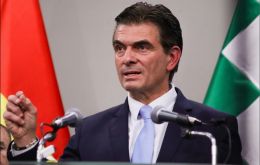
Bolivian President Rodrigo Paz Pereira has announced a drastic economic overhaul, declaring a state of “economic, financial, energetic, and social emergency,” which includes ending fuel subsidies that have been in place for over 20 years and implementing a significant increase in the minimum wage to offset the resulting inflation.
